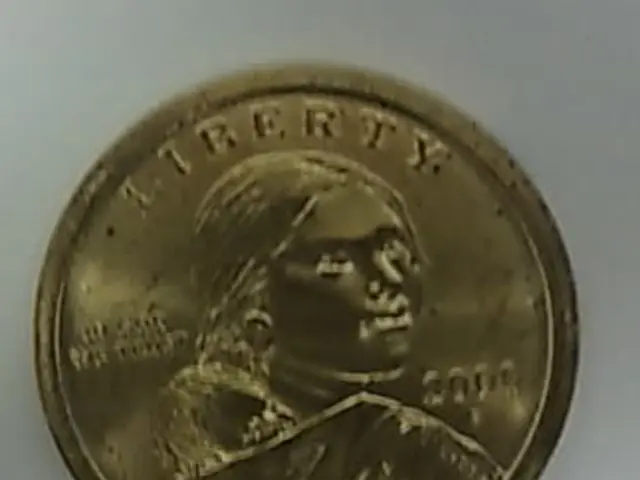Stock Market's Nikkei Index Soars to a Record High Following Ebbing Tariff Doubts
The Japanese stock markets, the Nikkei 225 and TOPIX, recorded their fifth consecutive trading day of higher finishes on August 12, 2025. The Nikkei 225 closed at a new all-time high of 42,718.17 points, surpassing its previous record of 42,224.02, which was set on July 11, 2024. The TOPIX index also reached a new all-time high, closing at 3,066.37 points on the same day.
The positive sentiment in the markets can be attributed to the U.S.–Japan trade deal, which was confirmed last week by Ryosei Akazawa, Japan's economic revitalization minister and the country's top tariff negotiator. The agreement sets a reciprocal tariff rate of approximately 15 percent on goods originating in Japan, as part of a comprehensive strategic trade and investment agreement. This agreement includes Japan's unprecedented $550 billion investment commitment in U.S. industries, aiming to strengthen bilateral economic ties and U.S. industrial power.
While the direct linkage to this trade agreement is nuanced, analysts like those at J.P. Morgan expect Japanese and global equities to remain range-bound in the short term, influenced by global trade developments, inflation concerns, and U.S. political factors. However, the agreement provides medium- to long-term optimism given increased Japanese investment in U.S. industries and improved trade terms.
The U.S. corporate earnings also showed strength, contributing to the positive investor sentiment. It's worth noting that the Tokyo Stock Exchange was closed on August 10, 2025 for a national holiday.
Despite the decreased risks, market volatility persists due to ongoing global trade tensions and tariff uncertainties. There were decreasing risks of further downward revisions to earnings estimates at Japanese firms, providing some stability to the markets. However, analysts caution that the 15 percent tariff rate is not a removal but rather a stabilization of uncertainty compared to prior heavier tariff regimes.
In essence, the current U.S. tariff stance with Japan balances reciprocal barriers (around 15%) with major investment commitments, supporting strategic industrial growth. This framework contributes to cautious but positive sentiment in Japanese stock averages like the Nikkei 225 and TOPIX, while broader market risks stay relevant.
A midsize securities firm official made a statement, recognising the positive impact of the trade deal on the markets, but also emphasizing the need to closely monitor global trade developments and other macroeconomic factors. The U.S. tariff policy on Japan involves an agreed reciprocal tariff rate of approximately 15 percent, established under the comprehensive strategic trade and investment agreement announced in July 2025.
- The midsize securities firm official highlighted that the trade deal's positive impact on the markets should be closely monitored, as it involves a new reciprocal tariff rate of approximately 15 percent on Japanese goods, placed within the comprehensive strategic trade and investment agreement.
- Following the U.S.–Japan trade deal, the official stated that increased Japanese investment in U.S. industries provides medium- to long-term optimism, prompting strategic industrial growth and possibly impacting future financing and investment decisions in the business sector.






